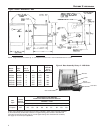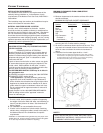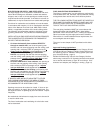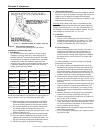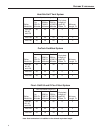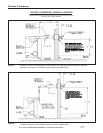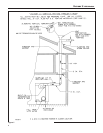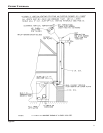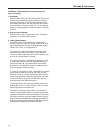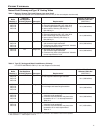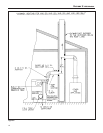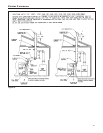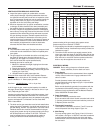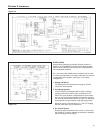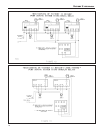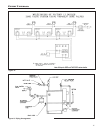
VI
CTORY
II V
HS Models
10
CATEGORY I VENTING (Natural Draft Chimney and
Type “B”Venting)
1. Installation
Model VHS-90, VHS-120, VHS-150 and VHS-180 may be
v
ented into a natural draft masonry chimney or natural
draft type“B” vent if a 3" diameter stainless steel elbow
connected to the boiler’s flue collar and the vent connec-
tor converted to 5" diameter using a 3" x 5" vent adapter.
Single or multiple appliance venting are shown in Figures
9 and 10.
2. Vent Connector Material
Vent connectors may be single wall or Type “B” made of
galvanized or stainless steel materials.
3. Venting Requirements
If the boiler vent is to be installed into a natural draft
masonry chimney or Type “B” venting, it must be in accor-
dance with National Fuel Gas Code ANSI Z223.1-latest
edition, Part 7, Part 11 and Appendix G.
For a masonry vitreous tile-lined chimney which is not
exposed to the outdoors, use Table 1 in this Slant/Fin
manual for venting requirements. DO NOT install this sys-
tem into an unlined masonry chimney.
If a masonry chimney is exposed to the outdoors on one
or more sides below the roof line (exposed chimney), it
must be re-lined with a UL listed metallic liner system.
See Table 2 in this Slant/Fin manual for venting require-
ments of metallic re-lined chimneys.
If a Type “B” vent system is used, it must NOT be exposed
to the outdoors below the roof line. See Table 2 in this
Slant/Fin manual for venting requirements. Vent connec-
tors serving appliances vented by natural draft shall NOT
be connected into any portion of mechanical draft sys-
tems operating under positive pressure.
In some cases, the vent connector diameter must be up-
sized further to 6" or 7". Refer to Table 1 and 2 for instal-
lations requiring this increased size.
If this boiler is replacing a boiler which is connected to a
common venting system with other natural draft, gas-fired
appliances, the removal of the existing boiler from the vent-
ing system is likely to cause the system to be too large for
proper venting of the appliances remaining connected to it.
At the time of removal of the existing boiler, the test proce-
dure specified in Appendix “B” must be followed.



